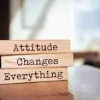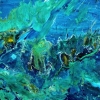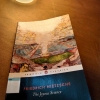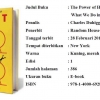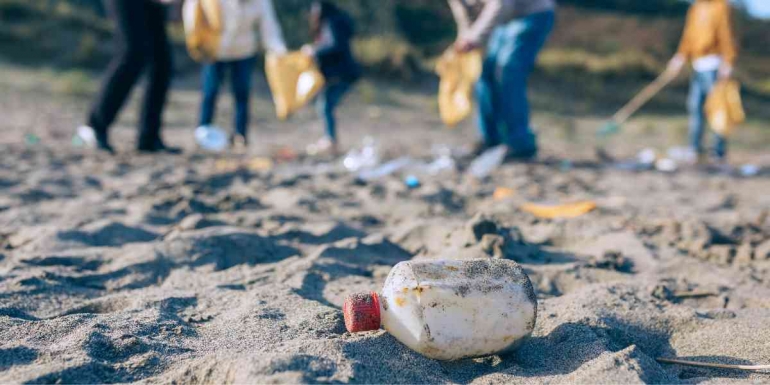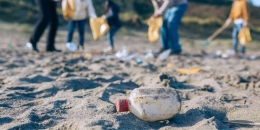One sunny afternoon in a densely populated residential area on the outskirts of town, a high school student is scrolling through his social media and then he stops to read an infographic about the detection of microplastics in drinking water. From that infographic, he learns that one of the reasons how microplastic ends up in the drinking water is because of the degradation of plastic waste that is carelessly thrown into the rivers. He then remembered the presentation given by researchers who visited his class two days ago about an invitation to do a beach cleaning project not far from his house. The researchers explained the danger of plastic waste to the environment and living things, and everyone's participation in combating plastic pollution is crucial, and even small things matter. For the beach cleaning, the researchers asked the students to collect plastic waste, separate it according to certain criteria, and take pictures. While still reading the infographic, his mother walks in front of him carrying a plastic bag full of plastic food packaging waste and then tells his younger brother to throw the plastic bag into the river behind their house. The high school student looks surprised. He then said to his mother, "Don't throw it into the river, Mom. It will come back to us as microplastic waste which is more detrimental to our health. Let me throw it in the trash".
That day, at least 1 kg of plastic waste is prevented from becoming microplastic pollution (if the waste management is done properly). And, everyone, that is the power of citizen science that we should empower to tackle microplastic pollution.
Microplastic pollution has been progressively acknowledged as a global problem by the public, however, few concrete steps have been made to tackle this problem. Implementing science-based action is significant for preventing and managing microplastic pollution. Besides the ongoing research conducted by the researcher and the hope for more strict policy from the government, increasing awareness of plastic pollution to human health and the environment and promoting a green lifestyle to change people's behavior towards plastic is paramount to minimize plastic pollution.
One way to accomplish this is by engaging the public in citizen science. What is citizen science? There is no standard definition for citizen science, although there are various concepts and terminologies that are used to describe it. It typically refers to a scientific program led by experienced scientists, where volunteers without professional backgrounds collect and/or analyze data that contribute to advancing scientific knowledge. These projects offer valuable data for research, promoting responsibility, and conservation efforts, while also raising awareness and influencing policies (MacPhail and Colla 2020; Kullenberg and Kasperowski 2016).
Can I be a citizen scientist? Of course. Basically, citizen scientists are people who work on scientific projects as volunteers. Their skill levels and education are varied, although most projects do not need official training or experience. Everyone, regardless of age, gender, or ability, is welcome to participate. Participants can volunteer on their own, with their families, at school, or in a group. However, those who are the subject or focus of the research study are not considered citizen scientists (MacPhail and Colla 2020).
How citizen science can help minimize plastic pollution?
Community involvement on the subject of limiting plastic usage in general and decreasing plastic pollution in the environment is an elaboration of reactions to address global environmental issues that started in the late 1960s and early 1970s (Mitrano and Wohlleben 2020). The concept of citizen science is also not new and is considered relatively common now. Successful programs have been performed in Indonesia and other countries, with beach cleaning being one of the first and most extensively used methods (Zettler et al. 2017).
Before doing the projects, volunteers will get training from the scientist or the organizer. Because it is easier for volunteers to observe and sample bigger macroplastic, most of the citizen science projects nowadays are focusing on that. For microplastics-related citizen science projects, the activity frequently involves water sampling with bottles or a net, beach monitoring, or collecting beach sediment samples. Other projects use a manta trawl (a net system for sampling surface water) attached to a paddle surfboard to collect samples nearshore. In most citizen science projects, volunteers gather samples while scientists characterize them in a lab (Clark et al. 2023; Collier et al. 2023).
Students can also participate in citizen science projects. Elementary students, for example, can be asked to monitor water quality and determine various physicochemical properties of water and also to observe microplastics in water samples that they collect from the beach. High school students can also participate in activities that explain the chemical structure of daily used plastics and how they degrade in the ocean. These hands-on activities help younger kids learn about environmental issues by allowing them to connect directly with current significant problems they saw on social media and other media outlets (Collier et al. 2023).
Challenges with citizen science

